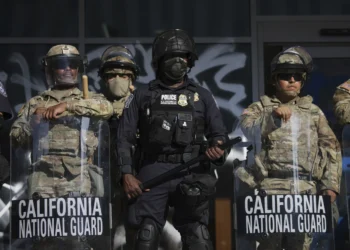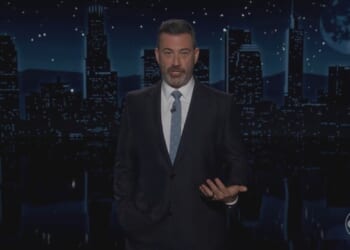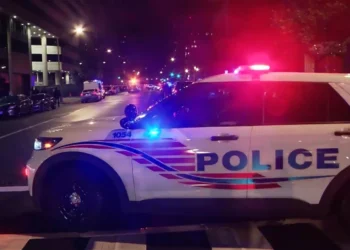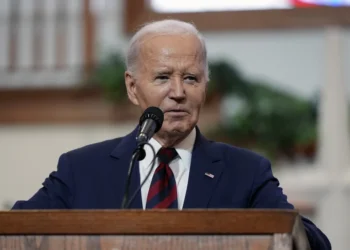U.S. and Iranian officials are continuing their nuclear negotiations, though there are few signs of an imminent breakthrough after the latest round of talks in Rome on Friday.
Friday’s conversations marked the fifth round of talks since they restarted these efforts with the beginning of the second Trump administration. Oman is mediating the talks, and the country’s foreign minister, Badr bin Hamad Al Busaidi, said “some but not conclusive progress” was made after Friday’s discussions.
“We hope to clarify the remaining issues in the coming days, to allow us to proceed towards the common goal of reaching a sustainable and honourable agreement,” he said.
Iranian Foreign Minister Abbas Araghchi, who is leading Tehran’s negotiating team, told state television that this round of talks was “one of the most professional rounds of negotiations,” but did not specify whether the two sides had been able to bridge the gaps that have prevented them from finalizing an agreement.
The fundamental sticking point, according to both sides, is the White House’s “red line” on Iran’s nuclear enrichment. Tehran has maintained that while it is willing to come to a deal to ease the minds of concerned foreign leaders that its civilian nuclear program could be weaponized, it would not be willing to dismantle its nuclear facilities altogether.
Ahead of the talks, Araghchi made Tehran’s stance clear: “Zero nuclear weapons = we DO have a deal. Zero enrichment = we do NOT have a deal.” Last week, he added, “Mark my words: there is no scenario in which Iran abandons its hard-earned right to enrichment for peaceful purposes.”
Iranian Supreme Leader Ali Khamenei has also attempted to limit expectations of an agreement, saying, “We don’t think it will lead to any outcome.”
Alternatively, U.S. State Department spokeswoman Tammy Bruce said on Thursday, “Clearly we believe that we are going to succeed. We’ve also been very clear on some basic things, like they’re not going to have a nuclear weapon. They’ve been very clear — most of our leaders have been who’ve spoken on it — that this is about no enrichment. And the Iranians are at that table, so they also understand what our position is, and they continue to go.”
President Donald Trump has repeatedly threatened military action if the United States and Tehran cannot come to an agreement, even though he has spoken against previous U.S. presidential decisions about never-ending conflicts in the Middle East.
Israel is also considering whether now is the appropriate time for it to carry out an attack targeting Tehran’s nuclear infrastructure, given Iran’s proxies have been severely weakened over the last year and a half since Hamas’s Oct. 7, 2023, attack put the country on a war footing.
KHAMENEI DOUBTS US NUCLEAR TALKS WILL SUCCEED AS ENRICHMENT QUESTION PERSISTS
The U.S. reportedly has “new intelligence suggesting that Israel is making preparations to strike Iranian nuclear facilities,” according to CNN. Araghchi, in response to the reporting, said Tehran would take “special measures” to defend its nuclear infrastructure, and would hold the U.S. responsible for an Israeli attack.
During Trump’s first term, he withdrew the U.S. from the 2015 Joint Comprehensive Plan of Action, which the Obama administration had agreed to with Tehran.

















